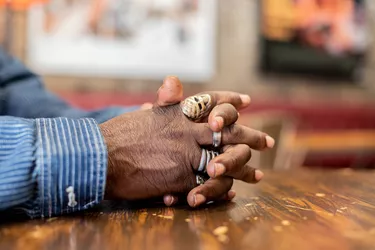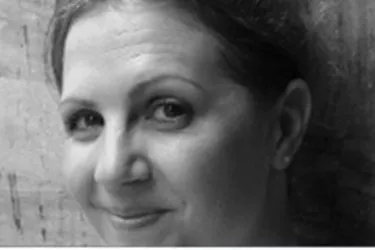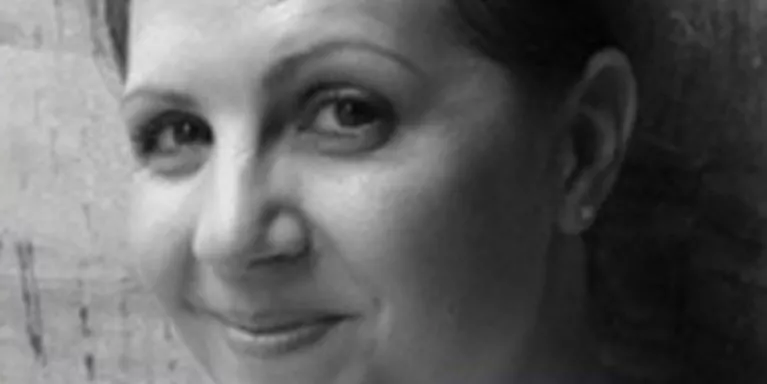How EMDR helped me
Sue blogs about post-traumatic stress disorder (PTSD) brought on by a series of serious operations and how being referred for EMDR (eye movement desensitisation and reprocessing) helped her feel better.
In the past 30 years I’ve had 10 operations. The first one caused post-traumatic stress disorder (PTSD) and I’d been living with it ever since.
I’ve always known it was a problem. I’d tried to get help before, but that’s often easier said than done. Especially since the subsequent operations only made it worse.
After my most recent surgery last year, I began to feel very unwell. It turned out I had life threatening complications, which led to three petrifying nights back in hospital.
When I returned home, even though I was physically on the mend, mentally, I was broken. After everything, this latest experience felt like the final straw.
I was constantly on guard and hyper vigilant, always trying desperately to protect myself. From the food on my plate to the blood I’d been transfused, I was terrified of everything.
There were flashbacks, sobbing sessions, intrusive thoughts and sleepless nights – not to mention the constant crushing sensation in my chest and tightness around my throat.
I was convinced it was not over. Convinced that I would die and it was exhausting.
I put the fact that I survived the first few weeks down to the unfaltering support and patience of my husband and our families. It also helped that I had a GP who seemed to really care.
Recognising the mental toll the experience had had on me, my GP referred me for six weeks of talking therapy. After meeting me, my therapist realised I needed a different type of support and suggested treating me for PTSD using eye movement desensitization and reprocessing (EMDR).
"EMDR sounds odd, and I guess it is. As someone with a huge distrust of healthcare professionals I wanted to run a mile when my therapist suggested it."
They explained that it’s a therapy that follows the theory that your brain has not been able to process a traumatic event in the way that it should, and this causes problems. It’s a bit like the memory of the event is stuck. To ‘unblock’ the memory a therapist needs to get your brain moving while you concentrate on the memory.
In practice it’s just you sitting in front of your therapist recalling a memory. At the same time they get you to make specific eye movements by following their finger from left to right.
See, I told you it sounds odd.
I was afraid at first. It sounded pretty serious. Would it make me worse? Would it physically hurt? Could it be damaging?
I had begun to trust my therapist, so I took the plunge. Before we started we created a ‘safe place’ in my imagination, somewhere I could go to help me feel calm if recalling hard memories got too scary. That was the nice bit.
But then I had to pick a memory to work with, and that meant talking about everything that had caused my PTSD. All of it.
"Describing the memory in the first sessions was heart wrenching."
For me the memory was not it the past. It was real and in the present as if I was experiencing the situation again right then, in that very moment. I spent a lot of time in my ‘safe place’ before I left therapy that day.
In my second session, my eyes followed my therapist’s wagging finger. We focused on one memory and worked on it repeatedly. Week after week. For weeks.
It was upsetting, but in time it was less so. The images became less vivid and I began to see the memory differently. I told myself I was safe. That I’d survived. It was no longer a frightening and powerful thing. It became something that happened in the past. After about eight weeks, the tightening in my chest and throat subsided, too.
We worked with several memories (include some from my very first surgery) in exactly the same way, and with the same result.
And after eight months I was discharged from therapy, feeling completely different.
"I can now talk about my hospital experiences quite dispassionately – they are my history, not my present."
I feel less afraid of visiting hospital in the future. I feel calmer, cry less easily and think about hospital a lot less too.
I’m grateful that my NHS therapist fought for me to have more than six session and to get the right treatment I needed. She’d say she was just doing her job, but I owe her a lot. I know that not everyone gets the therapy they need. I’ve been very fortunate, in more ways than one.
When I searched online for other people’s stories, I found very little and it almost made me too afraid to try it. I know that everyone is different, and I realise it might not work for everyone, but for me the result of EMDR has been overwhelming.
I wanted to write this blog so that other people searching might be able to find something to encourage them to seek help, or give EMDR a go if they have the chance.

Related Topics

Information and support
When you’re living with a mental health problem, or supporting someone who is, having access to the right information - about a condition, treatment options, or practical issues - is vital. Visit our information pages to find out more.
Share your story with others
Blogs and stories can show that people with mental health problems are cared about, understood and listened to. We can use it to challenge the status quo and change attitudes.

















